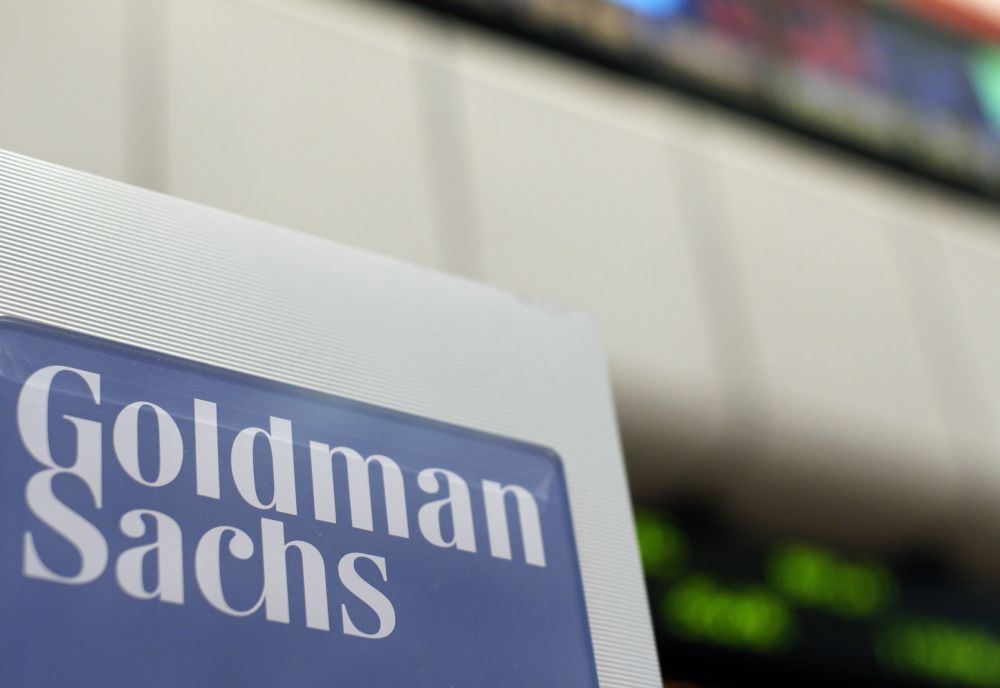LONDON — After years of international isolation under the rule of Col. Muammar el-Qaddafi, Libya sought to emulate its Middle Eastern neighbors by creating a sovereign wealth fund in 2006 to invest the proceeds from its sale of oil.
The North African nation soon turned to Goldman Sachs to help it invest some of the more than $35 billion in funds it had available in late 2007.
That relationship soured after the Libyan Investment Authority said it was misled by the Wall Street bank in 2008 about a series of derivatives transactions and ultimately lost $1.2 billion when those contracts came to maturity in 2011.
Goldman Sachs, by comparison, earned more than $200 million in “eye-watering” profit on the transactions, the sovereign fund asserted in a trial that began on Monday in London.
The Libyan Investment Authority, unlike many sovereign wealth funds, said that it was an unsophisticated investor with a staff that had little experience with investment banking and that Goldman Sachs preyed on the naïveté of its staff to persuade the fund to invest in complex transactions that they didn’t understand or desire.
On Monday, Roger Masefield, a lawyer for the Libyan Investment Authority, argued that Goldman used training programs; gifts; trips to Dubai, London and Morocco; and an internship for the younger brother of the fund’s deputy executive officer to win favor and convince the fund to engage in the investments.
“This is a highly unusual case,” Mr. Masefield said.
The trial is being heard in the High Court in London before Justice Vivien Rose and is expected to last about seven weeks. The lawsuit was first filed in London two years ago.
Goldman has disputed the claims and says that the Libyan Investment Authority had the financial sophistication to understand the disputed transactions and other similarly complicated transactions it engaged in.
The dispute revolves around nine derivatives transactions tied to the stocks of Citigroup, the French utility EDF and other companies.
The Libyan fund entered into the transactions in 2007 and in 2008 in the months before the financial crisis and ultimately lost its investment as the economic downturn weighed on the stock prices of the companies in the disputed transactions.
At the time, Libya was looking to engage with the global markets after years of political isolation and stagnant development.
The Libyan Investment Authority soon developed a close relationship with Goldman and by mid-2007 considered it not only a trusted adviser, but as “almost an in-house bank,” according to the Libyan Investment Authority’s assertions.
The Libyan Investment Authority, like the sovereign wealth funds of other developing countries, was seeking to purchase strategic stakes in global companies that could be partners for its future development, according to court filings. That included financial companies.
In its filings, the Libyan Investment Authority argued that Goldman was aware of the financial naïveté of its staff, citing emails in which one banker said the fund had “zero-level sophistication” and another banker who said “you just delivered a pitch on structured leveraged loans to someone who lives in the middle of the desert with his camels.”
Much of the fund’s arguments centered on the actions of Youssef Kabbaj, a former Goldman Sachs banker.
The Libyan Investment Authority said that Mr. Kabbaj wined and dined members of the fund’s staff on “training” trips to London, which included accommodations in a stylish hotel and frequent expensive meals out at many of London’s best-known restaurants.
In one instance, his expenses for entertaining and hotels exceeded 22,000 pounds, or about $31,000, and he was reminded internally at Goldman that any expenses incurred with respect to the Libyan fund needed prior approval, according to court filings.
Mr. Kabbaj also bought staff members of the fund presents and took them on vacation to Morocco, according to the court filings.
Mr. Masefield argued that Mr. Kabbaj also worked on both sides of the derivatives transactions, “ghost writing” documents for staff members of the fund to be used to convince its board of directors to invest and then separately making presentations to the fund on behalf of Goldman Sachs.
The Libyan fund also argued that Goldman tried to win influence by providing an internship to Haitem Zarti, the younger brother of Mustafa Zarti, the fund’s deputy executive officer.
“This very internship has been, and may still be, the subject of investigation” by the Securities and Exchange Commission “and Goldman Sachs appears to be carrying out its own internal investigation into its hiring practices,” the fund said in court filings.
According to court filings, Mr. Kabbaj entertained Haitem Zarti in London on his Goldman Sachs expense account and took him on vacations to Morocco. The Libyan fund said that Goldman Sachs paid for Haitem Zarti’s business class flights and 5-star accommodations on a trip to Dubai and Mr. Kabbaj arranged for a “pair of prostitutes to entertain them both one evening” on that trip.
